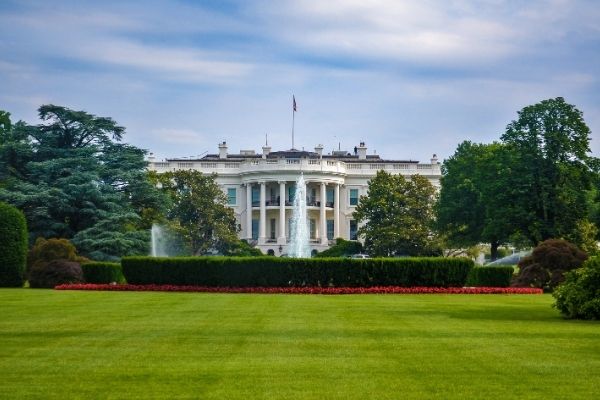- Latest News
- Trump's new immigration reform
Trump's new immigration reform
US President Donald Trump presented his new plan to reform the US immigration system at the White House on Thursday, 15 May 2019. This proposal favors young immigrants with higher education and aims to remove the popular Green Card lottery.
Take the chance of living in the USA and apply for the official US Green Card Lottery!
Current options for immigration
At this point, there are four ways to obtain a Green Card for living in the USA:
- through a highly qualified job in the USA
- through family reunion with US relatives
- through an investment in the millions
- by winning the Green Card Lottery
Since hardly any regular person fulfils the high requirements for a Green Card via the workplace, has one million in their pocket, or has close relatives in the USA, the Green Card Lottery promises the best chances for a permanent work and residence permit for the United States. Currently, 55,000 Green Cards are randomly raffled each year by the U.S. government.
The annual Green Card lottery has been held since 1994. It is also known as the official Diversity Immigrant Visa Program and was designed to maintain the cultural diversity of the United States of America. So when Republican President Ronald Reagan launched the program, immigrants of various nationalities were highly welcomed.

Trumps immigration reform: What will change?
The "Diversity Immigrant Visa Program" in its current form has been a thorn in the side of President Trump since the beginning of his term. He therefore repeatedly called for the removal of the annual draw and strives for a radical reform of the entire immigration system instead.
In the future, the US president wants to create a points-based system similar to Canada. Trump's son-in-law Jared Kushner and his advisor Stephen Miller were largely responsible for the concrete draft. The plan is to increase the proportion of high-skilled immigrants with college degrees from currently 12 percent to 57 percent. This includes mainly experts, specialists and extraordinary good students. Factors such as age and English skills were also being considered.
In contrast, significantly fewer Green Cards would be issued for family-based immigration, which currently affects two thirds of the approximately 1 million Green Cards issued annually. In the future, this proportion would be reduced to one third, mainly considering minor children and spouses of US relatives. Parents, siblings and adult children of immigrants would consequently face much greater difficulties.
Will the Green Card Lottery be removed?
Trump wants to eliminate the Green Card Lottery completely. Instead he strives for a fair, modern and lawful system for future immigration. In his opinion, geniuses and brilliant minds are currently being discriminated and should have better immigration opportunities. However, the jobs and security of American workers would be a priority.
For the Democrats, it is supposed to sound like a compromise, because according to this model, the same number of Green Cards will continue to be issued annually.

Does Trump's immigration reform have a chance?
At The American Dream, we are obviously paying particular attention to Trump's reform plans. We think he will have a hard time getting the draft through Congress in its current form. Since the Democrats now hold a majority in the House of Representatives, broad support in Congress is rather unlikely.
Democrat Nancy Pelosi, speaker of the House of Representatives, also called the plan "dead-on-arrival", especially as the Democrats believe that any compromise on immigration should necessarily include a solution for the 11 million DREAMERS - children of illegal immigrants raised in the USA. In his new proposal, however, the President deliberately leaves these out of the equation.
Nevertheless, Trump hopes to be re-elected next year and even to win back the majority in both chambers of Congress. This would still make it possible to restructure the US immigration system. The future of the US Green Card Lottery therefore remains extremely uncertain beyond 2020.
faz.net, sueddeutsche.de, tagesspiegel.de, tagesschau.de, zeit.de

 DE
DE EN
EN ES
ES FR
FR IT
IT PL
PL TR
TR UA
UA